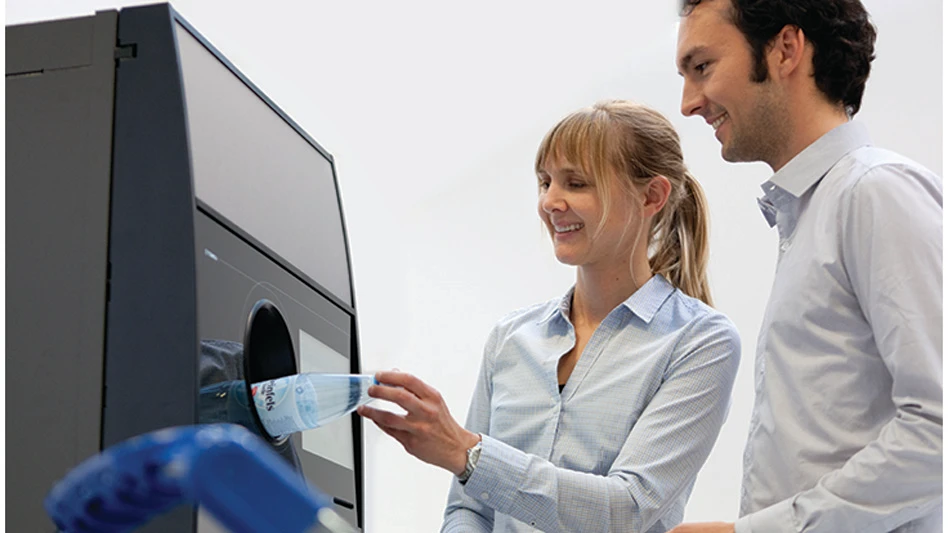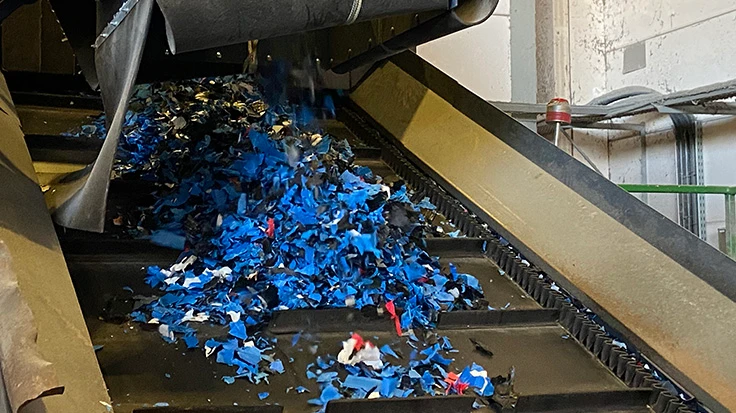Over the past year, metals theft and fraud had been “growing at a dramatic pace,” lamented International Trade Council (ITC) Chairman Robert Voss of U.K.-based Voss International. Voss made the statement to attendees during the Bureau of International Recycling’s (BIR) annual meeting in Shanghai.
At the 2012 annual BIR convention in Rome, the ITC devoted a special workshop on the extent and impact of theft and fraud were having on the metals recycling sector. Since then, BIR’s decision to join the International Maritime Bureau (IMB)—a crime-fighting unit of the International Chamber of Commerce—had already prevented headaches for “a good number of members” through providing access to IMB’s “huge” database.
Furthermore, said Voss, more exporters were taking steps such as improving the quality of the container seals and introducing tracking devices on seals, container and the goods to protect themselves against theft.
Another of the ITC’s key missions is to defend the free movement of recyclables. In this context, Voss named around a dozen countries, including South Africa and India, whose governments had been contacted by the ITC over measures or proposals for some form of trade barrier affecting secondary raw materials.
Voss stressed the need for input from BIR members to maximize the ITC’s effectiveness in its fight against protectionism, theft and fraud.
In one of three guest presentations at the ITC meeting, Cui Lei of the China Certification & Inspection Group (CCIC) presented statistics which, he said, underlined China’s massive demand for secondary raw materials and the effectiveness of its pre-shipment inspection procedures. Of the “unqualified” waste raw materials exported to China, plastics accounted for 56 percent; nonferrous, 17 percent; and paper, 9 percent.
Further, CCIC inspectors undertook continuous training, Lei added, to minimize inconsistency in their interpretation and application of the rules.
“Only a small percentage of your exports are of poor quality, but you need to give this small percentage your attention or your export efforts will fail,” added Cui. He also opened up the possibility of a co-operation agreement between CCIC and BIR with the goal of jointly overcoming “any difficulties” relating to China’s import regime.
Fellow guest speaker See-Toh Khan Horng, director of corporate sales at the Royal Bank of Scotland in Singapore, explored foreign exchange from the perspective of hedging costs, arbitrage and local currency invoicing. In regards to currency issues, Horng observed, “Today, Asian countries are encouraging exporters to invoice in their domestic currencies, especially China and India. This is to raise the international profile of their currencies and reduce the impact of currency rate fluctuations. Exporters benefit in a variety of ways from domestic currency invoicing, which enables them to reduce prices, perhaps by as much as five percent.”
Paul Lam, deputy general manager at Jiang Tai Insurance Brokers Co. Ltd., was the third speaker at the ITC panel. He outlined developments in China regarding risk and insurance management, before urging foreign companies operating in the country to carry sufficient insurance protection.
The 2013 BIR World Recycling Convention & Exposition was at the Pudong Shangri-La Hotel in Shanghai May 27-29.
At the 2012 annual BIR convention in Rome, the ITC devoted a special workshop on the extent and impact of theft and fraud were having on the metals recycling sector. Since then, BIR’s decision to join the International Maritime Bureau (IMB)—a crime-fighting unit of the International Chamber of Commerce—had already prevented headaches for “a good number of members” through providing access to IMB’s “huge” database.
Furthermore, said Voss, more exporters were taking steps such as improving the quality of the container seals and introducing tracking devices on seals, container and the goods to protect themselves against theft.
Another of the ITC’s key missions is to defend the free movement of recyclables. In this context, Voss named around a dozen countries, including South Africa and India, whose governments had been contacted by the ITC over measures or proposals for some form of trade barrier affecting secondary raw materials.
Voss stressed the need for input from BIR members to maximize the ITC’s effectiveness in its fight against protectionism, theft and fraud.
In one of three guest presentations at the ITC meeting, Cui Lei of the China Certification & Inspection Group (CCIC) presented statistics which, he said, underlined China’s massive demand for secondary raw materials and the effectiveness of its pre-shipment inspection procedures. Of the “unqualified” waste raw materials exported to China, plastics accounted for 56 percent; nonferrous, 17 percent; and paper, 9 percent.
Further, CCIC inspectors undertook continuous training, Lei added, to minimize inconsistency in their interpretation and application of the rules.
“Only a small percentage of your exports are of poor quality, but you need to give this small percentage your attention or your export efforts will fail,” added Cui. He also opened up the possibility of a co-operation agreement between CCIC and BIR with the goal of jointly overcoming “any difficulties” relating to China’s import regime.
Fellow guest speaker See-Toh Khan Horng, director of corporate sales at the Royal Bank of Scotland in Singapore, explored foreign exchange from the perspective of hedging costs, arbitrage and local currency invoicing. In regards to currency issues, Horng observed, “Today, Asian countries are encouraging exporters to invoice in their domestic currencies, especially China and India. This is to raise the international profile of their currencies and reduce the impact of currency rate fluctuations. Exporters benefit in a variety of ways from domestic currency invoicing, which enables them to reduce prices, perhaps by as much as five percent.”
Paul Lam, deputy general manager at Jiang Tai Insurance Brokers Co. Ltd., was the third speaker at the ITC panel. He outlined developments in China regarding risk and insurance management, before urging foreign companies operating in the country to carry sufficient insurance protection.
The 2013 BIR World Recycling Convention & Exposition was at the Pudong Shangri-La Hotel in Shanghai May 27-29.
Get curated news on YOUR industry.
Enter your email to receive our newsletters.
Loading...
Latest from Recycling Today
- Schwan Cosmetics introduces packaging free of styrene, ABS
- Aimplas coordinates EU project focused on solar panel circularity
- Fresh Perspective: Brandon Sacca
- New Hampshire the Beautiful Inc. awards recycling equipment grants
- Cards acquires National Waste of Tulsa, Oklahoma
- Defra updates Digital Waste Tracking policy
- Star Plastics, Trivalence Technologies set to merge
- RecyClass updates Design for Recycling Guidelines, Recyclability Evaluation Protocols






